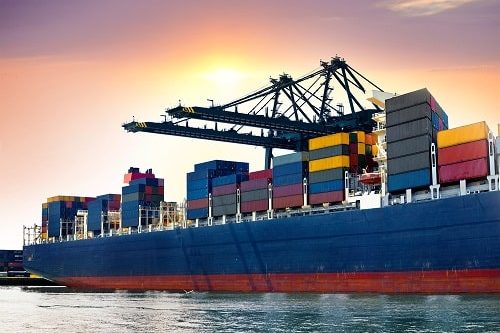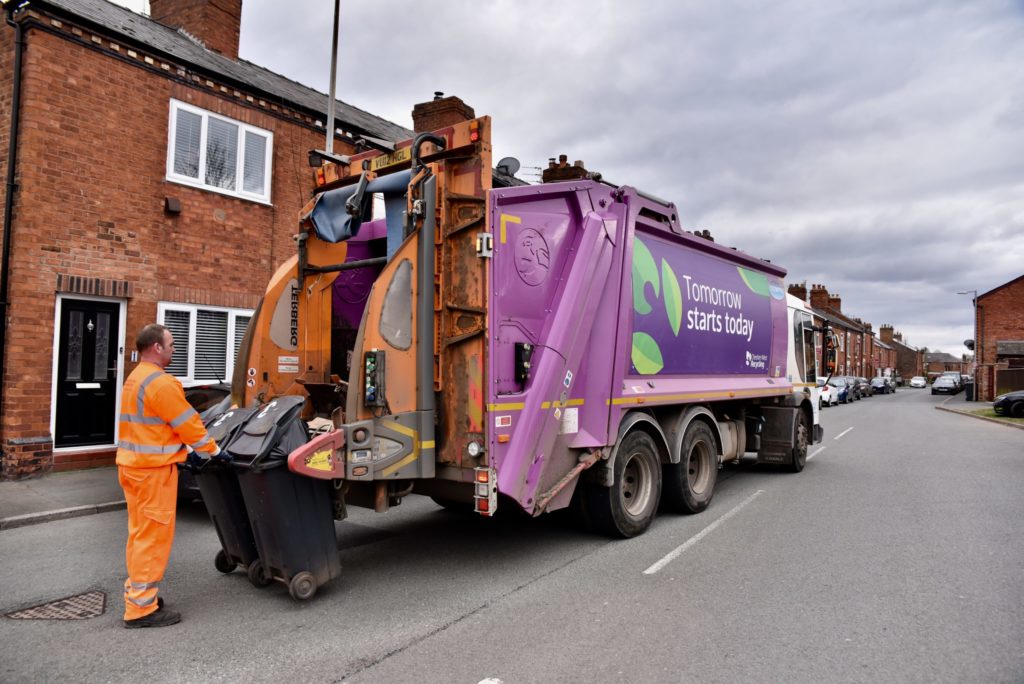As part of the Chinese government’s plan to reform its waste import regulatory regime, two more waste import-related regulations came into effect in recent months, in addition to all the changes and adjustments made by various Chinese government departments throughout 2017 to tighten their controls over imported waste.

Closely following development of the situation, CCIC London would like to bring the attention of the UK waste exporters to these two latest regulations, namely Decree No. 194/2017 released by AQSIQ and Public Announcement No. 48/2018 by General Administration of Customs of China (GAC), based on which CCIC London is now actively drawing up a plan to re-shape its pre-shipment inspection model.
New Pre-shipment Inspection Model Required
Both regulations are of vital importance to all stake-holders in the waste export trade, in the sense that they outline the latest Chinese regulatory system for waste import, setting out up-to-date obligations of all parties involved in the waste import chain including overseas suppliers and inspection agency, and specifying penalties for breaches.
Most important of all, the regulations reiterated requirements on how pre-shipment inspections are expected to be executed. It is explicitly stated in the regulations that the pre-shipment inspection of waste material involves “inspection, supervised loading and seal-applying” at the loading locations, which current CCIC inspection model needs to align to. Striving to ensure full implementation of the regulations, CCIC London is currently working on a new inspection model that would fulfil the latest requirements. In the meantime, we would like to call for the UK recycling industry to work with us in setting up the new inspection model, in order to sustain the export to China for years to come.
Supervision of overseas suppliers updated
CCIC London has also summed up some of the key elements for supervision of overseas suppliers, which are as follows:
a. Consolidation of competent authority for waste import inspection and supervision
After the central government departments reshuffle in March 2018, GAC has taken over supervision of waste import port inspection nationwide and its local Customs offices are now in charge of imported waste port inspection and quarantine.
b. Overseas Supplier Registration Rules
GAC is now in charge of issuing supplier licenses to overseas waste exporters. The license, previously often referred to as AQSIQ license, is the prerequisite for selling waste material to China.
Some of the most important rules regarding the license are:
- Newly issued license will have a validity period of 5 years instead of 3;
- The overseas supplier license could be revoked in scenarios including:
- The material critically fails in terms of environmental issues
- The supplier does not cooperate on the return of its failing material
- The supplier does not return its failing material within 6 months after the Environmental Non-compliance Report is issued due to the shipper’s fault
- The supplier ships returned material to mainland China once again
- The supplier transfers its license or license number to other suppliers
- The supplier submits false documentation, including false entry documents
- The supplier commits fraudulent activities during the export
- The supplier grossly rejects supervision from the Customs
- The supplier exports waste beyond approved waste categories
- The supplier or its affiliates are engaged in PSI inspections
- The supplier no longer meets requirements for qualified license holder
- Additional clauses for license revoke include:
- If the registered address is non-existent
- If the business registration document or tax document is invalid
- If the business operation permit is invalid
- If the legal person is non-existent
- When the license is obtained through concealment or fraudulent documents
- When the license is obtained through cheating or bribery
- License amendment
“GAC is now in charge of issuing supplier licenses to overseas waste exporters. The license, previously often referred to as AQSIQ license, is the prerequisite for selling waste material to China.”
CCIC London
The supplier should apply for license amendment within 30 days after the changes. Failure to do so could lead to Type B risk warning towards the supplier being triggered, which will be discussed later in the article. Of the items of business name, business registration address, and legal person, if 2 or more of them have changed, a new registration is needed instead of license amendment.
- License renewal
The supplier should apply for renewal 90 days before the license expiry date. GAC could refuse to renew the license if the supplier fails to follow the timeframe.
c. Risk Warning System and Quick Responses
Type A/B/C risk warning systems are in place for overseas suppliers. If a warning is triggered, GAC and the Customs will respond by taking corresponding measures promptly.
In the case of a Type A warning, the Customs will stop accepting imported waste from the certain overseas supplier for one year in scenarios such as:
- When the imported waste is found posing serious quarantine risks;
- When serious discrepancy between actual waste material and the PSI certificate is found during port inspection, caused by the supplier;
- If more failures in terms of environmental issues happen during port inspection when the supplier is already on Type B warning list
If a Type B warning is triggered, the Customs will conduct 100% inspection at the destination port for waste from the certain supplier for no less than 100 days, and the total number being 100% inspected should be no less than 100 shipments. Type B warning could be triggered in scenarios such as:
- When the imported waste is found posing high quarantine risks;
- Up to 3 failures in total in terms of environmental issues have happened during port inspection in the course of one year;
- When the supplier’s just been removed from Type A warning list;
- When the supplier failed to update its supplier license information within the required timeframe
- When the supplier is re-registered with GAC after previous license revoke
- When its quality manage system is found seriously flawed during on-site audit from the Customs
If a Type C warning is triggered, the Customs will conduct extra stringent inspections at the destination port on material from the supplier in question, in scenarios such as:
- When failure in terms of environmental issues has been found during port inspection;
- When risk management/control measures are deemed necessary











Subscribe for free